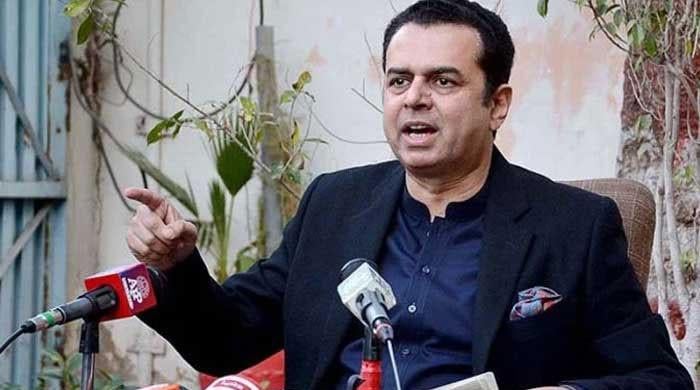Qureshi says present rulers lack vision
Asim YasinISLAMABAD: Former foreign minister Shah Mehmood Qureshi Wednesday described the budget as a visionless document and accused the present rulers of not having an imaginative agenda at a time...
June 09, 2011
ISLAMABAD: Former foreign minister Shah Mehmood Qureshi Wednesday described the budget as a visionless document and accused the present rulers of not having an imaginative agenda at a time when the country desperately needed honest and visionary leaders.
Taking part in the budget debate in the National Assembly, he said the IMF had drafted the budget in Dubai and the government was simply following the international agency’s agenda. He said the budget contained all the targets given by the IMF in Dubai where they had asked the government to curtail the budget deficit at 4 percent and remove subsidies.
Qureshi said the people’s expectations from the PPP government were shattered because the budget contained nothing for the poor who were overburdened with hidden taxes. He taunted his own party for accusing the previous regime of erroneous economic policies. “They can’t blame the previous regime since half of the cabinet of the General Musharraf era is now sitting in cabinet,” Quereshi said.
He said India had maintained a growth rate of 9 percent for the last many years while Pakistan’s growth rate was below 3 percent. He said the government had failed to control inflation as a result of which the prices of essential items such as sugar, rice and meat had risen sharply.
He said farmers were not getting the support price of wheat, which was fixed at Rs960 per 40 kg while the agriculture sector growth has declined and would continue to deteriorate when the GST was imposed on agriculture products. “The government through this budget has imposed taxes of Rs44 billion on the agriculture sector,” Qureshi added.
He also criticised the withdrawal of Rs203 billion subsidies on different items and said this would add to the worries of the common man. He said in order to address the issue of unemployment, the government would have to achieve 7 percent growth rate, arrange demand-driven vocational training programmes for youth, give loans to poor farmers and make its credit policy supportive of self-employment.
Qureshi said public debt had emerged as a formidable challenge for the government and the government should take debt management seriously. He termed the allocation for PSDP insufficient and opposed the imposition of GST on agriculture products, saying the sector should be given incentives to ensure growth on sustainable basis. He supported taxes on all incomes including agriculture income.Taking part in the budget debate, Maulana Fazalur Rehman expressed reservations on the efficiency of the armed forces saying the Pakistani people had criticised the armed forces for the first time, following the for May 2 and May 22 incidents.
But at the same time he pointed that conspiracies were being hatched in the West to isolate Pakistan and to weaken its armed forces. In this regard he referred to the recent statement of Iranian President Mahmoud Ahmadinejad and said it should be an eye-opener for all Pakistanis.
He said good-neighbourly relations between Pakistan and India were imperative for durable peace and stability in South Asia. Expressing disappointment over the budgetary proposals, Fazl said the economic targets set for the next fiscal year were ambitious and impossible to achieve.
PML-N legislator Ayaz Amir said Pakistan was passing through difficult times and the events of last month had brought the country into the international spotlight. He said incessant drone attacks were an insult to the Parliament’s resolution of May 14 unequivocally calling to cut NATO and ISAF’s supply line if such incursions continued.
Amir said a day after the resolution was passed Senator John Kerry arrived in Pakistan on May 16, followed by US Secretary of State Hillary Clinton, who was accompanied by US Joint Chiefs of Staff Gen Mullen, apparently to undo what the Parliament had done vis-‡-vis unilateral military strikes inside Pakistani territory.
Amir voiced concerns over what he described as one-third of the budgetary allocation for defence, saying Parliament was still not in a position to scrutinise defence spending. He criticised the National Assembly’s standing committee, of which he is a member, for not playing its role efficiently. He said Pakistan needed to concentrate on problems within its borders. “It’s time to bring about change and set a new course,” he added.
Fauzia Wahab said this was the first democratic government after 1977, which has presented its fourth budget. She criticised the opposition for resorting to rancorous protest during the budget speech, describing it as a violation of parliamentary norms and traditions. She appreciated the government’s economic team for bringing exempted sectors into the tax net.
Khawaja Sohail Mansoor said keeping in view the financial constraints, the government could not have presented a better budget. He said the government should announce incentives for Overseas Pakistanis who were sending remittances to shore up the country’s economy. He proposed the abolition of tax on machinery for the promotion of industrial sector.
Engineer Khurram Dastgir regretted that the budget contained no proposal for the revival of state-owned enterprises, which have become a burden on the national economy. He said that the compensation being given to poor segments of society under BISP was insufficient.









